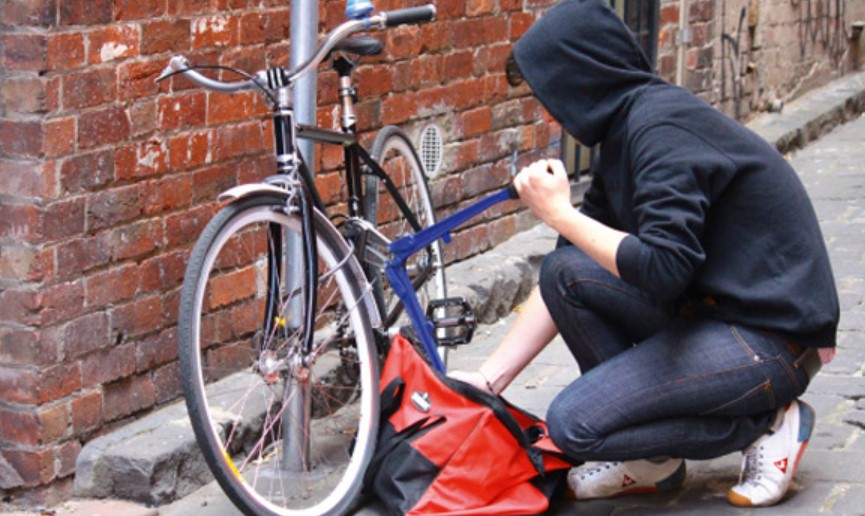What Usually Happens To Stolen Bikes? Explained
Are you looking for What Usually Happens To Stolen Bikes? Understanding the journey of these stolen bikes provides crucial insights into this dilemma. The process from theft to their eventual fate, whether they end up in black markets or are dismantled for parts, is complex. This exploration sheds light on the intricate world of bike theft, emphasizing the importance of robust security measures and recovery efforts.
Key Takeaways
- Understanding the fate of stolen bicycles
- Insights into theft prevention and recovery
- The role of technology and community in addressing bike theft
What Usually Happens To Stolen Bikes? Fate of Stolen Bikes

Redistribution Channels
Stolen bikes often find their way into various illegal channels. These include black markets, online sales platforms, and underground networks. The anonymity of online marketplaces, like Craigslist or eBay, makes them a preferred choice for thieves to sell stolen bikes quickly.
Dismantling and Parts Sale
Another common fate for stolen bikes is dismantling. Thieves strip the bikes for parts, which are then sold separately. This method makes it harder to identify and recover the stolen items, as the parts are less recognizable and can be sold to unsuspecting buyers.
Export to Different Locations
Some stolen bikes are transported to different cities or countries. This geographical shift makes tracking and recovery significantly more challenging. The lack of a unified global database for stolen bikes further complicates this issue.
Prevention and Recovery Strategies
Importance of Locking Mechanisms
Effective locking mechanisms are crucial in bike theft prevention. Investing in high-quality locks and being mindful of locking techniques can significantly deter theft.
Registration and Tracking Technology
Registering bikes with local or national databases and using tracking technologies like GPS devices can aid in recovery. These methods increase the chances of locating a stolen bike.
Community Vigilance
Community efforts, such as neighborhood watch groups and online forums, play a significant role in prevention and recovery. Sharing information about stolen bikes and suspicious activities can help in tracking down the thieves and recovering the bikes.
Role of Law Enforcement and Legislation
Law enforcement agencies and legal frameworks are essential in combating bike theft. Effective policing and stringent laws against bike theft can act as deterrents. However, the prioritization of bike theft cases often varies, impacting recovery efforts.
Impact of Bike Theft on Owners
The emotional and financial toll on victims of bike theft is significant. Apart from the monetary loss, the sentimental value attached to bikes and the inconvenience caused by their absence cannot be overlooked.
Technological Advancements in Bike Security
Innovations in bike security, such as smart locks and alarm systems, are becoming increasingly popular. These technologies offer enhanced protection and peace of mind to bike owners.
Is It Worth Claiming Stolen Bike?
Claiming a stolen bike is often worth the effort, as it can lead to recovery and help in documenting crime statistics. When a bike is reported stolen, it’s entered into national and local databases, increasing the chance of recovery if the bike is found or turned in.

The success rate of recovery varies, but reporting the theft is a critical first step. It also assists law enforcement in understanding the magnitude of bike theft in a particular area, which can influence their resource allocation and preventive measures. According to the National Bike Registry, registering and reporting your bike can significantly increase the chances of recovery.
Do Police Actually Look For Stolen Bikes?
Police departments do look for stolen bikes, but the priority given to these cases can vary based on the department’s resources and the volume of theft cases. Larger cities, where bike theft is more common, may have dedicated teams for bike theft.
These departments often use registered bike databases and collaborate with local cycling communities. However, in areas with limited resources or higher crime rates, bike theft may not be a top priority.

Bike owners need to provide as much information as possible, including serial numbers and photos, to aid in the search. According to a report by the San Francisco Bicycle Coalition, police efforts are more effective when bikes are registered and reported stolen promptly.
Where Do Stolen Bikes Go?
Stolen bikes often end up in a variety of places. Many are sold on the black market or online marketplaces like Craigslist and eBay, where they can be quickly and anonymously sold. Others are taken apart and sold for parts, which makes them harder to identify and recover.
In some cases, particularly in cities with high bike theft rates, stolen bikes are transported and sold in different cities or even countries, complicating tracking and recovery efforts.
According to a study by the University of California, a significant number of stolen bikes end up in flea markets or used bike shops, making it difficult for owners to track them down without serial numbers or other identifying information.
Conclusion
To conclude, What usually happens to stolen bikes? They often end up in illegal markets, dismantled for parts, or transported to different locations. Understanding this journey emphasizes the importance of robust security measures, community vigilance, and effective law enforcement strategies.
By being proactive and utilizing technology, we can mitigate the risks and impacts of bike theft. The collective effort of individuals, communities, and authorities is pivotal in addressing this ongoing challenge.
Frequently Asked Questions
What role do pawn shops play in bike theft?
Pawn shops can unknowingly be a marketplace for stolen bikes. However, many regions have laws requiring pawn shops to record and report items they receive, which can help in tracking stolen bikes. Buyers should always be cautious and verify the legitimacy of bikes purchased from pawn shops.
Can registering my bike prevent theft?
While registration doesn’t prevent theft, it increases the chances of recovery. It makes it easier to prove ownership and assists law enforcement in returning the bike if found.
How can I make my bike less attractive to thieves?
Use multiple locks, avoid leaving your bike in the same spot regularly, and consider using unbranded or less flashy accessories. Additionally, uniquely customizing your bike can deter thieves.
Are there any specific areas where bike theft is more common?
Bike thefts are more common in urban areas, particularly in places with high cyclist traffic like bike racks near public transportation hubs, universities, and shopping centers.

Welcome to the exhilarating world of Matt Rex, a professional car racer turned renowned vehicle enthusiast. Immerse yourself in his captivating blog as he shares heart-pounding adventures, expert reviews, and valuable insights on cars, trucks, jets, and more. Fuel your passion for speed and discover the beauty of vehicles through Matt’s engaging stories and meticulous expertise. Join the ever-growing community of enthusiasts who find inspiration and expert advice in Matt Rex’s blog—a digital hub where the thrill of speed meets the pursuit of knowledge.







